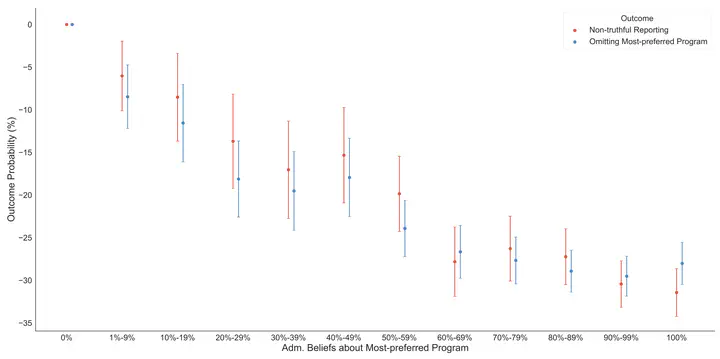Why Do Students Lie and Should We Worry? An Analysis of Non-truthful Reporting
 How admission beliefs affect preference manipulation
How admission beliefs affect preference manipulationAbstract: A core aspect in market design is to encourage participants to truthfully report their preferences to ensure efficiency and fairness. Our research paper analyzes the factors that contribute to and the consequences of students reporting non-truthfully in admissions applications. We survey college applicants in Denmark about their perceptions of the admission process and personality to examine recent theories of misreporting preferences. Our analysis reveals that omissions in reports are largely driven by students’ pessimistic beliefs about their chances of admission. Moreover, such erroneous beliefs largely account for whether an omission led to a missed opportunity for admission. However, the low frequency of these errors suggests that most non-truthful reports are “white lies” with minimal negative impact. We find a novel role of personality and individual circumstances that co-determine the extent of omissions. We also find that estimates of students’ demand are biased if it is assumed that students report truthfully, and demonstrate that this bias can be reduced by making a less restrictive assumption. Our results have implications for the modeling of preferences, information acquisition, and subjective admission beliefs in strategy-proof mechanisms.